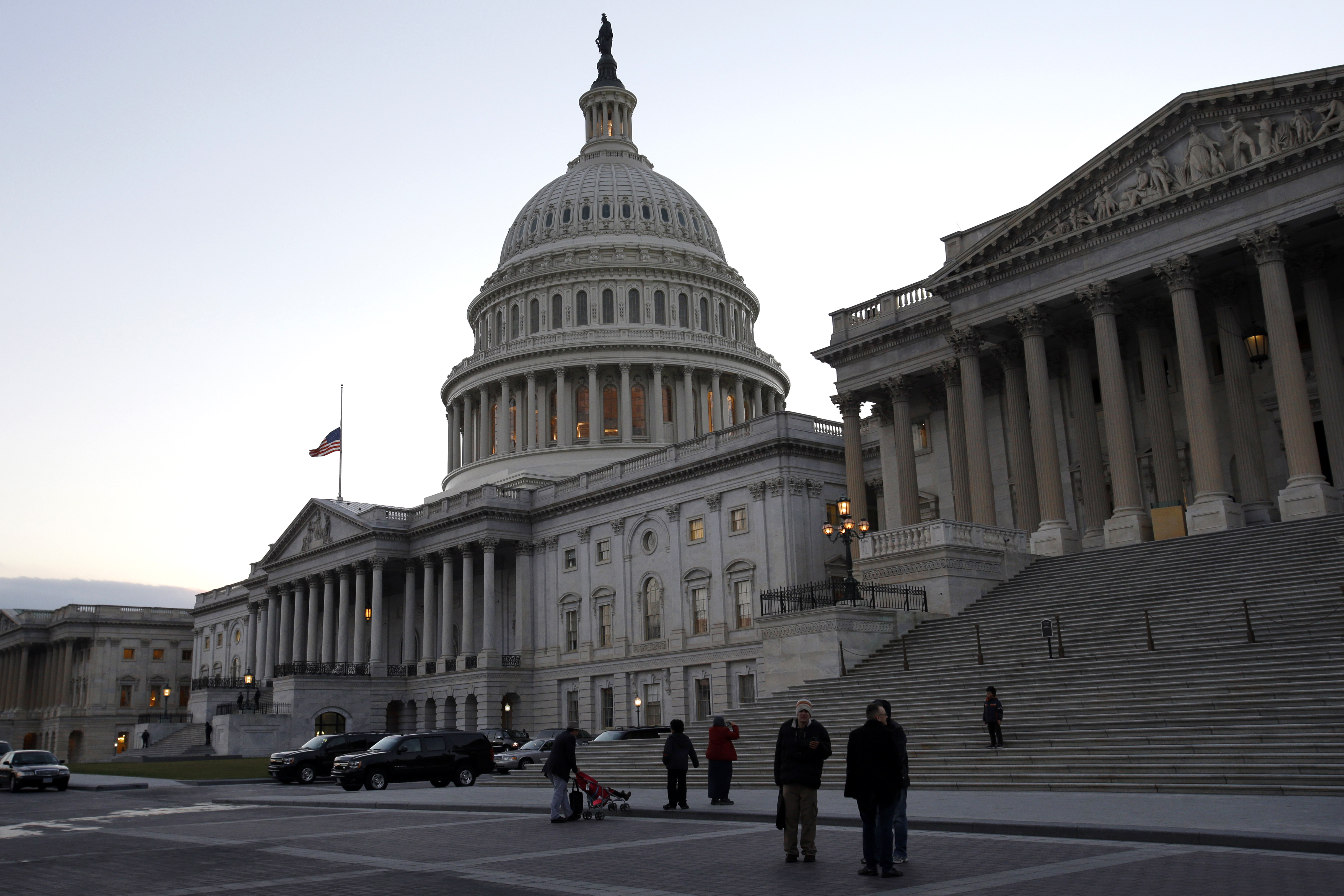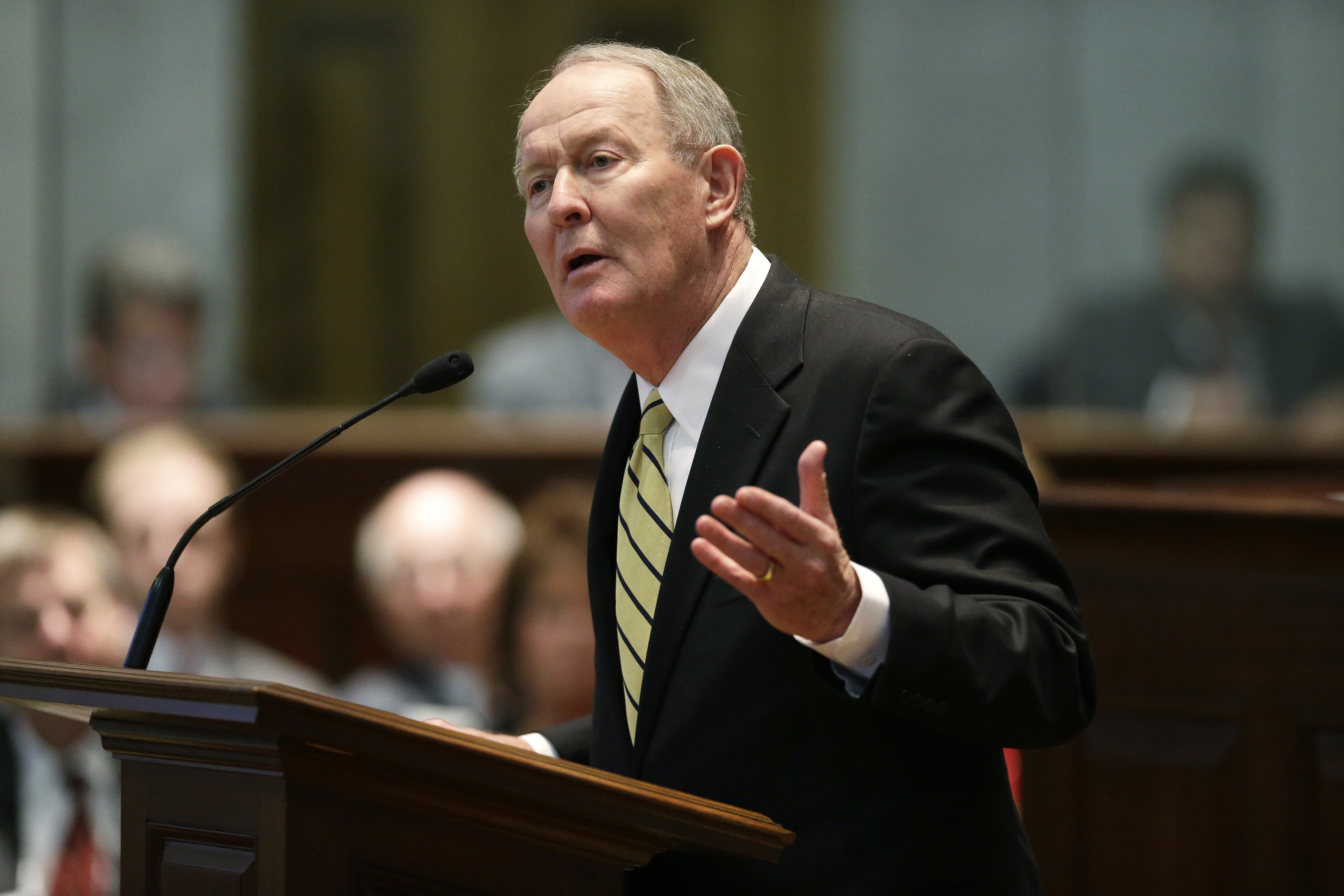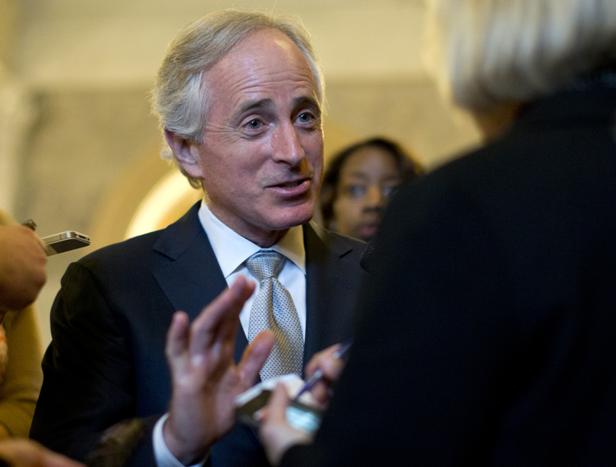BIG IDEASA few new bills from area legislators:* U.S. Sen. Lamar Alexander, R-Tenn.Bill title: Freedom to Fish ActSynopsis: Would prevent the U.S. Army Corps of Engineers plan to restrict public access and fishing in the tailwaters below 10 dams on the Cumberland River."[The plan] would destroy remarkably good recreational opportunities and many jobs," Alexander said.* U.S. Sen. Saxby Chambliss, R-Ga.Bill title: Fair Tax Act of 2013Synopsis: Would eliminate the income tax, employment tax and estate and gift tax, replacing them all with a 23 percent sales tax in 2015. Also "prohibits the funding of the Internal Revenue Service" in 2017. Previously introduced without success by Sen. Johnny Isakson, R-Ga.* U.S. Rep. Steve Cohen, D-Tenn.Bill title: The Fair Access to Credit Scores Act of 2013Synopsis: Would include a "reliable, accurate credit score" with the free annual credit reports available to consumers by the existing Fair Credit Reporting Act. Many Americans must pay for credit scores; obtaining that information "is not nearly as easy as it should be," according to Cohen's office.* U.S. Rep. Jim Cooper, D-Tenn.Bill title: Redistricting Transparency Act of 2013Synopsis: Would require states to post redistricting information online, including data, details of the process, proposed maps and public hearing dates. The public would be allowed to comment before maps are approved."Voters used to choose their politicians, but now politicians choose their voters," Cooper said. "Both parties are guilty of crafting maps in secret and that's wrong."* U.S. Rep. Chuck Fleischmann, R-Tenn.Bill title: Returned Exclusively for Unpaid National Debt (REFUND) ActSynopsis: Would allow states to return unwanted federal funds to "be used to reduce the federal debt.""The REFUND Act is a simple and efficient way to begin paying down the federal deficit by curbing unwanted spending," Fleischmann said.* U.S. Rep. Tom Graves, R-Ga.Bill title: Defund Obamacare ActSynopsis: Would deauthorize appropriation of funds and cancel prearranged obligations to carry out the Patient Protection and Affordable Care Act, which is scheduled to go into full effect next year. Several similar bills are floating around the House, but none is expected to pass the Senate or hit the president's desk."I am committed to ripping out Obamacare by its roots," Graves said.Sources: Library of Congress, congressional offices
WASHINGTON - When political reporters write about members of Congress, they often call their subjects lawmakers.
So, the popular assumption goes, congressmen and senators smoke cigars and debate over heaps of paper, passing new laws and changing the way Americans behave, consume and spend.
Not quite. While many in Congress introduce truckloads of bills, only a precious few of those bills ever become law. Like a Hall of Fame hitter who fails 70 percent of the time, a senator is considered a lion when he passes one-eighth of the paperwork he produces.
Think Ted Kennedy. Out of 2,500 bills the Massachusetts Democrat introduced over 46 years in the Senate, 300 became law, according to the Boston Globe.
A much smaller success rate applies to greater Chattanooga-area representatives and senators over the past six years.
Since 2007, U.S. Sens. Lamar Alexander and Bob Corker, Republicans of Tennessee, haven't sponsored a single bill that passed into public law, Senate records show; between them, they've introduced 70. The track record is a little better in Georgia, where U.S. Sens. Saxby Chambliss and Johnny Isakson have introduced a combined 99 bills, passing five into law.
But the group has contributed to plenty of other bills that went all the way -- something far more nebulous and difficult to quantify.
One hundred years from now, said Senate historian Donald Ritchie, legislators will more likely be remembered for their ability to debate, sway, negotiate, compromise and mesh than for their congressional batting averages.
"You'll get more done if you're willing to let someone else take credit for it," Ritchie said. "There are other legacies beyond turning legislation into law."
Three second-term Republican congressmen from the Tennessee Valley -- U.S. Reps. Scott DesJarlais and Chuck Fleischmann of the Chattanooga area and Tom Graves of North Georgia -- are a combined 0-for-18 since they moved to Washington in 2010.
"The jury's out on all these new guys," Dalton State College political science professor Ken Ellinger said. "Until they gain seniority, their chances of passing anything aren't very good."
But probabilities aren't great for anyone, rookie or veteran. Of 4,652 bills introduced over the past session's final year, 148 (or 3.1 percent) became public law. Most congressional experts say that's why legislative effectiveness shouldn't be measured on statistics alone.
"Sometimes you can see who the real players are," Vanderbilt political science professor Bruce Oppenheimer recently said. "It's harder to tell who's not."
A NEW BALLGAME
The Volunteer State's 11 members of Congress collectively have introduced 34 bills since new terms began Jan. 3. Some are bills that failed during the last session. Ten came from the desk of U.S. Rep. Marsha Blackburn. The Brentwood Republican has pushed several bills to remove federal funds from abortion-related services.
"Bills introduced at the top of the session are often leftovers or something they promised they would introduce during the campaign," Oppenheimer said. "Some of that clearly is going to be very ideological."
DesJarlais, a Jasper Republican, is the only Tennessean without a single piece of legislation this session. Others already have had a bill gain serious traction or are openly discussing new ideas in the pipeline.
U.S. Rep. Jimmy Duncan said he plans to introduce a bill that would give all honorably discharged veterans a standard federal identification card.
"Some people want it just out of pride," the Knoxville Republican said in an interview. "Some want it because restaurants and motels give discounts to veterans. This would give them proof."
U.S. Rep. Jim Cooper, a Nashville Democrat, recently gained traction on a bill he has long championed. The "No Budget, No Pay Act," which would withhold congressional paychecks if they don't pass a budget, passed the House as part of the latest fiscal skirmish.
For the first time, it has legs going into the Senate.
Meanwhile, Graves, a North Georgia Republican, has introduced a solitary bill that would "defund Obama-care" -- something unlikely to happen with a Democratic Senate and president. (Not to mention, the Supreme Court upheld President Obama's landmark health care act last summer.)
Ellinger, the Dalton State professor, called Graves' bill "a completely pointless exercise from a legislative standpoint." But he said members feel a need to file them.
"Tom Graves knows it's wasted paper," Ellinger said, "but it's exactly the kind of thing his constituents want to hear from him."
A Graves spokesman did not respond to a request for comment.




